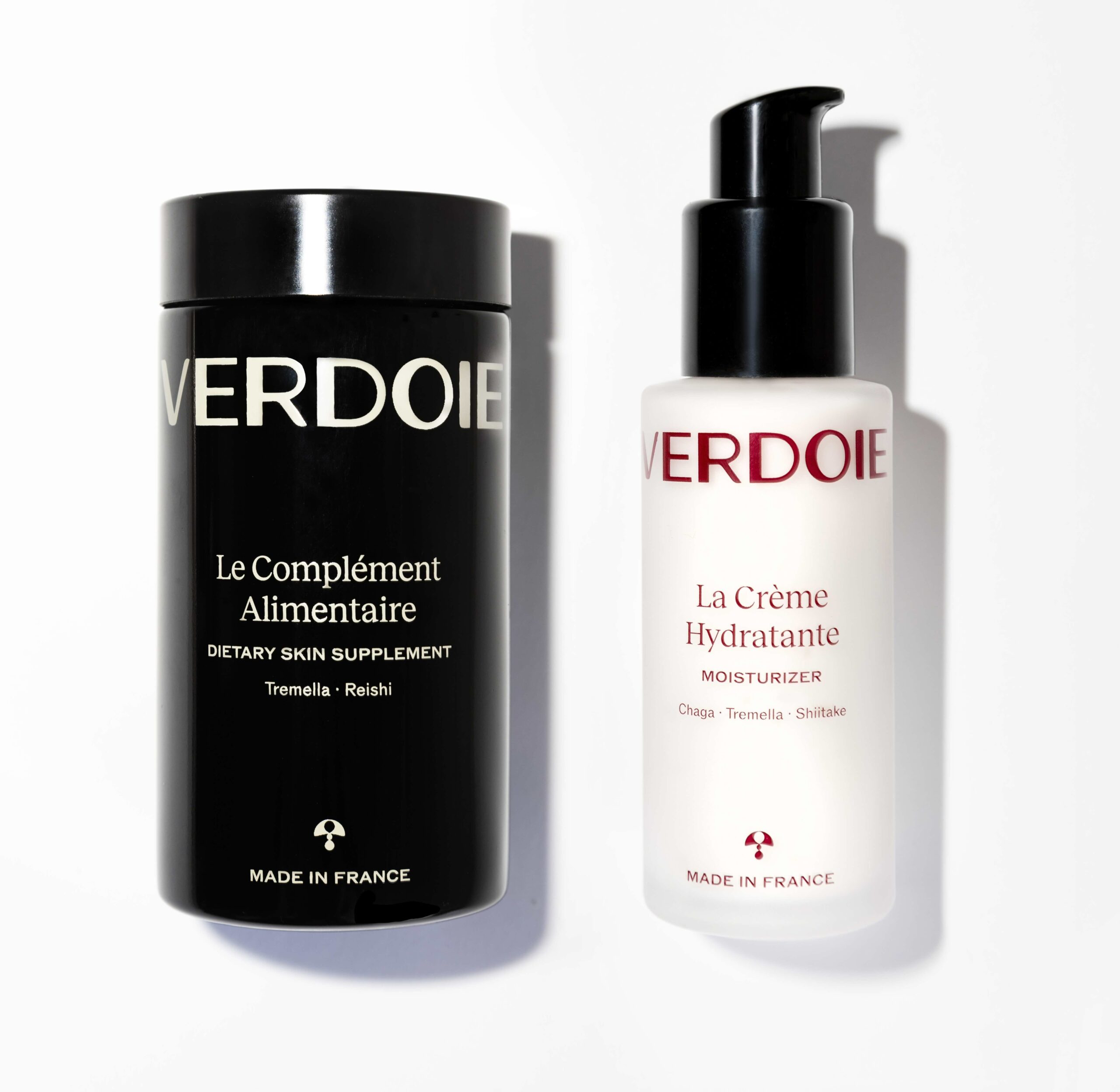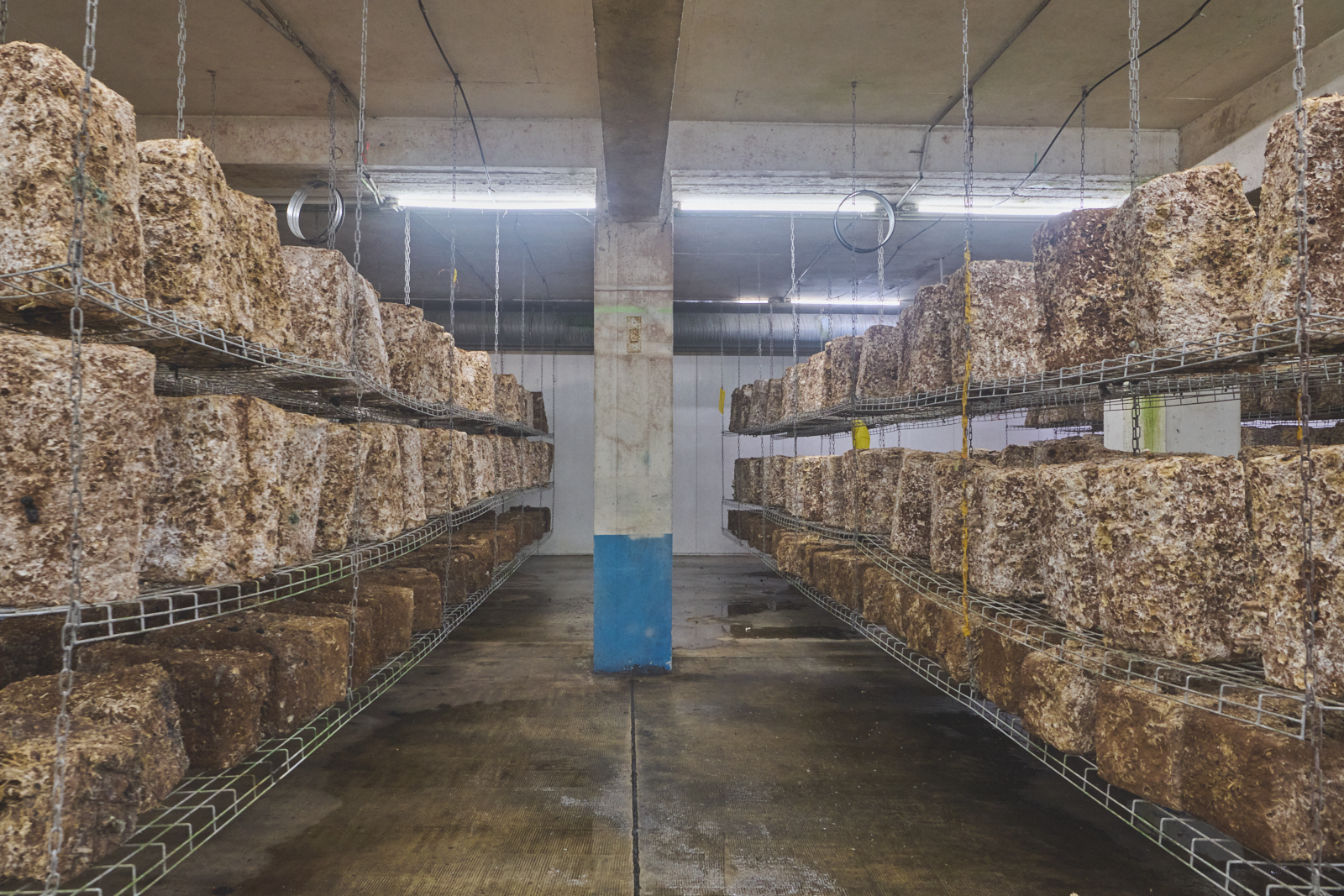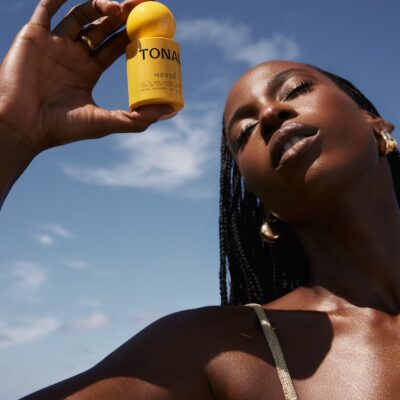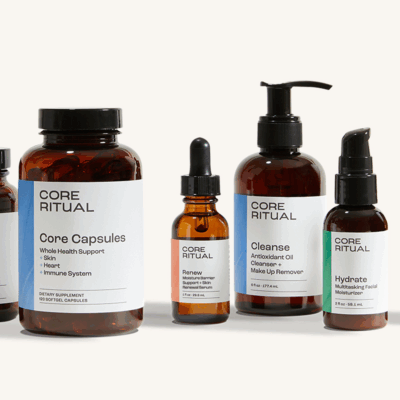
Verdoie Launches In Retail With Ambitions To Become A Major Mover In Mushroom Beauty And Wellness
After starting in direct-to-consumer distribution in January, Verdoie is putting down roots—or, the parlance of root-free mushrooms, hyphae—by entering retail at Credo Beauty and Pharmacie Continent 7ème.
The mushroom-powered Paris-based skincare and wellness brand has arrived on the market and at retail as two of its pillars—French beauty and mushrooms—have been, ahem, mushrooming. The market insights firm Mordor Intelligence projects the functional mushroom market will grow at a compound annual rate of 9.35% to $18.9 billion in 2030, with personal care and beauty applications growing the fastest.
Beauty was early to the mushroom trend that’s bombarded grocery and wellness aisles with coffee, tea and supplements. In 2018, for example, Sephora brought in Four Sigmatic, a mushroom-happy coffee brand that’s no longer sold at the chain, and beauty brands like Origins, Youth To The People, Volition Beauty and Herbar have incorporated all manner of mushroom ingredients.

Founder Sonia Gaillis-Delepine believes now is the time for Verdoie to capitalize and own mushroom beauty in retail. Prior to launching the brand, she conducted a survey of 250 consumers and discovered they’re intrigued by mushrooms, but their knowledge of them for beauty and wellness purposes is nascent.
“We have a huge opportunity to be able to share this with more people,” says Gaillis-Delepine, adding, “Credo was the right partner because they understand, A, supporting smaller brands, but, B, also supporting our vision to elevate mushrooms. The consumers are relatively primed toward mushrooms in various ways through mushroom coffee.”
Verdoie’s vision of mushroom beauty and wellness products spans topical skincare and supplements. Its skincare product is the lightweight moisturizer La Crème Hydratante, which focuses on preventing rather than correcting skin issues. It contains chaga, tremella and shiitake mushrooms and a patent-pending mushroom extract. Its supplement is Le Complément Alimentaire, which contains phytoceramides, vitamin E, astaxanthin and tremella and reishi mushrooms.
“We have a huge opportunity to be able to share this with more people.”
The products are priced at $88 each and harness the hydrating and healing capabilities of beta-glucans or fibers from mushroom cell walls. Dealing with the effects of Hashimoto’s disease, an autoimmune disorder where the body’s immune system mistakenly attacks the thyroid gland, Gaillis-Delepine has unpredictably sensitive skin, and she designed Verdoie’s products for people like her with sensitive skin. Older millennials are its core demographic, and 17% of its customers so far are men.
The brand is heavy on clinicals to verify the impact of its products. A 21-day, 22-member consumer perception study on its moisturizer showed 96% reported it immediately soothed sensitive skin and 91% reported it provided an instant feeling of comfort. A corneometric study of it showed the product delivered an almost 65% lift in hydration an hour post-application. Verdoie promotes its supplement as clinically proven to decrease the appearance of fine lines by 18%, increase elasticity by 26% and enhance hydration by 21% in two months.
Counteractively for a brand making money from a supplement, Gaillis-Delepine advises consumers to take Le Complément Alimentaire on 30-, 60- or 90-day cycles when they need a hydration boost such as when they’re traveling or during a period of high stress rather than every day of the year. The supplement began selling in April, and it’s already 20% of Verdoie’s DTC sales.

“It can easily slot in with your other supplement protocols,” says Gaillis-Delepine. “For us, there’s a real opportunity to educate people on more of a reasonable approach. I think some people are like, ‘Oh my gosh, don’t tell people that they can’t take it all year long,’ but it is more reasonable for people to slot in and out depending on what their skin needs.”
For French pharmacies like Pharmacie Continent 7ème, a Parisian pharmacy carrying Avène, Noux, Caudalie, Lierac, Filorga and Bioderma, brimming with brands and products, Gaillis-Delepine notes Verdoie’s tight assortment of two products is an easier pitch than if it had a bigger selection. She emphasizes that French pharmacies prioritize results above all else.
“Another retailer might just say, ‘Oh, you have an interesting audience. We really want to tap that in, or we want more of that consumer in the pharmacy,’” says Gaillis-Delepine. “I think the products themselves have to have a really strong baseline of understanding, OK, this is the problem, and this is the solution.”
“Mushroom skincare has traditionally always been a trend, and what we’re saying is that it’s actually not.”
Verdoie is joining the lineup at Credo as it’s paying greater attention to French beauty and wellness. For July, the clean beauty retailer is unveiling a French beauty capsule collection, and it just introduced Sakara’s beauty-oriented supplement Beauty Biome. The Credo Clean Standard or the retailer’s framework for ingredients, testing, labeling and beyond was updated this year to encompass supplements.
Jessica Trieber, VP of brands at Credo, commends Verdoie for smartly combining a supplement and skincare at the outset to tell a cohesive inside-out beauty story. “We’ve seen both where there are supplement brands that launch skincare or skincare brands launch supplements,” she says. “And the question is, do you have enough consumer trust? But I think that this idea that they’re supposed to work in tandem will appeal to consumers.”
While beauty retailers generally have had difficulties selling supplements, Trieber thinks the tide may be turning because supplements are being positioned better to draw beauty shoppers. She says, “What we’re seeing is more the brands that we’re talking to that really want that beauty consumer are taking some pages out of beauty in terms of before-and-afters and clinical. There’s a lot more evidence-based marketing around it, which is helping a lot.”

Gaillis-Delepine has a background in beauty—she was DSM-Firmenich’s global digital communications and social media manager for nearly four years—and family ties to mushroom cultivation. Her great-great-great grandfather Pierre-Louis grew mushrooms in the catacombs in the 1860s and 1870s. Today, Verdoie grows mushrooms for its products in an underground parking garage attached to a social housing complex.
Gaillis-Delepine raised a low six-figure sum to get Verdoie off the ground. She anticipates it crossing into profitability in its second year of business. Its next product is scheduled for release in April of next year. Sephora is Gaillis-Delepine’s dream retail partner for Verdoie down the line.
“No one has really owned the mushroom skincare prevention over correction. I think mushroom skincare has traditionally always been a trend, and what we’re saying is that it’s actually not,” she says. “We have clinical results, and we’re marrying that with our own IP patent-pending extract and building more of that moat that allows us to have more laterality in the types of products that we create.”





Leave a Reply
You must be logged in to post a comment.